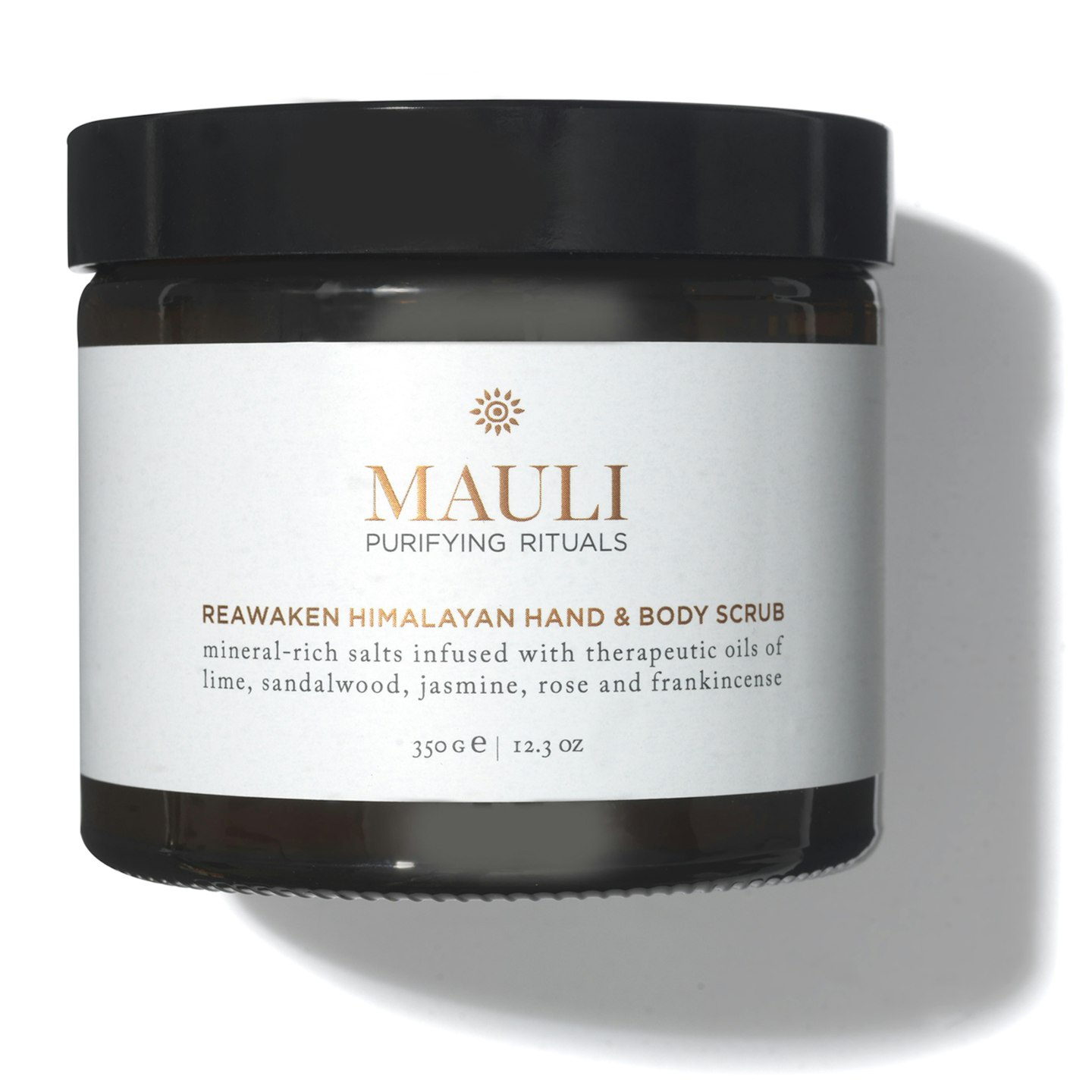The season of change is upon us, and it's time to reflect on what you wish to take into 2020 and what should be left behind in 2019. We've spoken to experts about all of the best ways to improve your life on a day-to-day basis, leaving you happier and healthy for a new decade.
1. Encourage Routine
Waking up feeling consistently groggy can affect how we feel throughout the day. ‘Have a fixed wake-up time seven days a week,’ advises Dr Neil Stanley, independent sleep expert. ‘Your body and brain start preparing to wake up approximately 90 minutes before you actually do, so if you have a fixed wake-up time, the body and brain can prepare accordingly.'
2. Track Your Triggers
Stress is often caused by seismic incidents, but watch out for the everyday ‘micro stresses’ that can cause harm when they accumulate, warns Dr Rangan Chatterjee, GP, author of The Stress Solution and host of the Feel Better, Live More podcast. ‘Little hits that happen every day, like reading a bad email before you’ve got out of bed, might not do much in isolation, but can build up.’ Keep a note of what your micro stresses are, and how you respond to them, so you’re better equipped to deal with them next time.
3. Spice Up Your Life
Adding Ayurvedic herbs and spices to your food is a seamless way to get a hit of goodness. ‘Black pepper stimulates the plasma in the blood, nervous system, spleen and circulatory system to help calm indigestion, release any toxins in the colon and lessen sinus issues,’ advises Anita Kaushal, founder of Mauli Rituals. ‘Or try making an aloe vera shot with lime, pepper and a little honey. This will get the toxins moving and leave you feeling lighter and brighter.’
4. Claim Back Your Commute
Whether your daily trek to work takes you 20 minutes or two hours, navigating the journey means that it can be a chaotic time. Instead of allowing the stress to take over your day before you even arrive at the office, Dr Chatterjee advises hacking your commute with a guided meditation session or jotting down calm thoughts in a journal.
5. Train Your Brain
‘We build self-esteem and confidence by learning how to think,’ says life coach Jacqueline Hurst (jacquelinehurst.com). ‘One of the best ways to put this into practise is to write things down in a journal and put sticky notes on the mirror reminding yourself of things like “Stay conscious of your thoughts today.” Do this with a friend so that you can be accountable to each other and discuss it for five minutes at the end of every day.'
6. Breathe It Out
When stress levels rise, your breathing changes. ‘Reframe this response by simply breathing in for four, holding for four, exhaling for four and holding for four,’ says Rebecca Dennis, breathwork coach, author of And Breathe and founder of Breathing Tree (breathingtree.co.uk). ‘This Box Breath technique is used in highly stressful situations by the SAS to focus and tune in. The key is to remember to keep the breath movement in the belly and not the chest area.’
7. Fill Up On Fibre
‘Gut health is linked to pretty much everything, including mental health, heart health and immunology,’ says Lisa Macfarlane, co-founder of The Gut Stuff (thegutstuff.com). Most of us fall short of the recommended 30g daily intake of fibre, but as well as reducing the risk of serious disease, it provides a slow, sustained energy release, helping us to feel more full and improving our mood, energy levels and cognitive ability. Fill up on fruit and vegetables (including skins where edible) as well as wholegrains, nuts, seeds and legumes.
8. Get Grounded
Stressful situations can make us feel unsteady. If you’ve had a tough meeting, get outside and try grounding, or earthing, the practise of connecting yourself directly to the earth. ‘Feel the ground beneath your feet, push your heels and toes into it,’ advises Rebecca. ‘Listen to the sounds around you and close your eyes if you can. In your mind say “I” as you breathe in and “let go” as you breathe out. Inhale and exhale with a little pause in between.’
9. Mindful Mantras
Need to keep a racing mind in check? ‘Busy minds can benefit from repeating a mantra,’ says Anita. ‘One need not believe in the mantra – just simply repeat the sounds. Repetition brings balance, strength and compassion for yourself and others.’
10. Go Green
Upgrade your evening workout by taking it outside. ‘This has been shown to benefit your mental health and well-being,’ says Lee Mullins, co-founder of Workshop Gymnasium. ‘Research has shown that training in nature produces a greater reduction in anxiety when compared with those who complete their workout in less natural settings.’
11. Rest Your Gut
Overdoing it constantly is a recipe for stress and the same applies to your gut. Known as intermittent fasting, a break from eating gives your body a rest from constant digestion and minimises the disruption to your microbiome’s own circadian rhythms. ‘Try giving yourself 12 hours between your last meal of the day and first meal the next day – we suggest 8pm- 8am, but do what works for you,’ advises Lisa.
12. Walk It Off
‘Going for a 10-minute walk is an easy way to help improve digestion and help wind you down in preparation for a good night’s sleep,’ says Lee. ‘When we consistently get poor quality sleep, our mood deteriorates, our motivation to exercise decreases and our cravings for poor quality foods increase.’
13. Write It Down
If endless to-do lists prevent you getting quality sleep, take action. ‘Make a list of things to be tackled,’ advises Dr Stanley. ‘They will still be there in the morning, so don’t worry about them overnight.’
14. Seek Out Down Time
‘Your brain is wired to need and respond to moments of calm,’ says Dr Chatterjee. ‘When we stop focusing on something, like a stressful presentation, our DMN (default mode network) goes into overdrive. It’s the creative part of the brain that enables us to solve problems, so having a break is important.’ So build 10 peaceful minutes into your routine at the start and end of every day.
15. (Sort Of) Break Up With Tech
While a device-free future isn’t realistic, its impact on our work/life balance is undeniable. ‘Studies show that our amygdala, our brain’s emotional response centre, is 60%more reactive when we haven’t slept well,’ says Dr Chatterjee, ‘and using tech before bed demolishes the restorative REM sleep we get.’ If you don’t already, charge your phone outside your bedroom and stop screen time at least two hours before bed. You’ll wake feeling more equipped to deal with stress.
SHOP: The Live Well Kit
The Live Well Kit
 1 of 4
1 of 4Mauli Reawaken Himalayan Hand & Body Scrub, £58
Sloughs away dead skin with mineral-rich Himalayan salts and melts away muscular aches and pains. Double tick.
 2 of 4
2 of 4Oliver Bonas MiGoals Pink Gratitude Journal B6, £13
Jot down any thoughts, feelings and inspirations on your daily commute to feel more present in the moment.
 3 of 4
3 of 4Lumie Bodyclock, £63
Wake up gently with the Lumie body clock that gradually lightens up your room for 30 minutes before your alarm goes off. You can also unwind naturally and set it in 'sunset' mode for 30 minutes before you hit the hay.
 4 of 4
4 of 4Sweaty Betty Power 7/8 Gym Leggings, £75
Make the most of your outdoor walks/hikes/runs/exercise with these ultra-soft, stretchy leggings that feel as good as they look.
